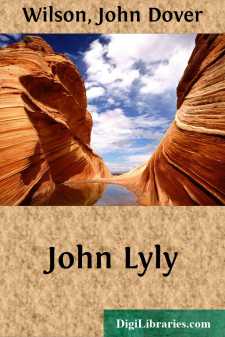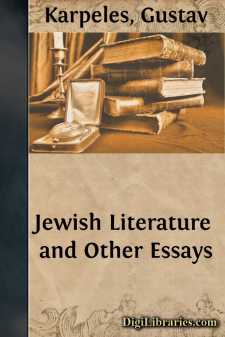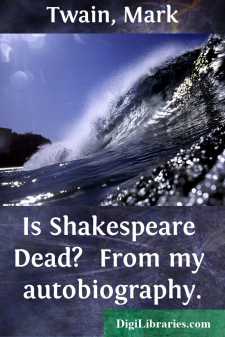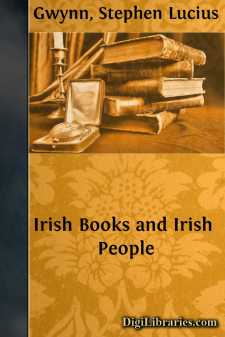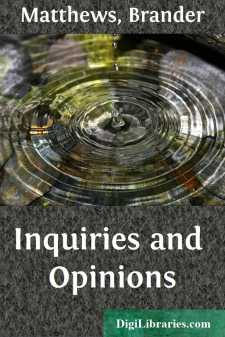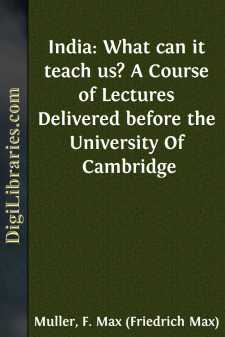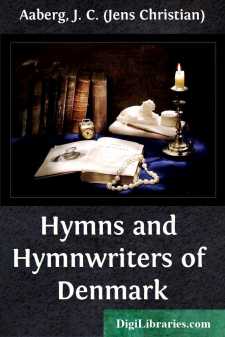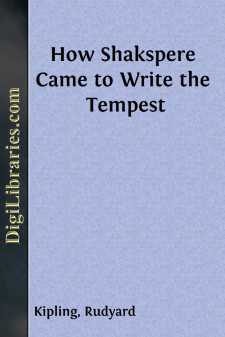Literary Criticism
- American 18
- Ancient and Classical 3
- Asian 1
- Australian & Oceanian 1
- Books & Reading 8
- Caribbean & Latin American 2
- Drama 2
- English, Irish, Scottish, Welsh 49
- European 7
- General 37
- Horror 1
- Humor 2
- Jewish 2
- Medieval 2
- Middle Eastern 3
- Poetry 7
- Renaissance 6
- Russian & Former Soviet Union 1
- Shakespeare 27
Literary Criticism Books
Sort by:
by:
Samuel Johnson
INTRODUCTION. Johnson's "Lives of the Poets" were written to serve as Introductions to a trade edition of the works of poets whom the booksellers selected for republication. Sometimes, therefore, they dealt briefly with men in whom the public at large has long ceased to be interested. Richard Savage would be of this number if Johnson's account of his life had not secured for him...
more...
PREFACE. The following treatise was awarded the Harness Prize at Cambridge in 1904. I have, however, revised it since then, and in some matters considerably enlarged it. A list of the chief authorities to whom I am indebted will be found at the end of the book, but it is fitting that I should here make particular mention of my obligations to the exhaustive work of Mr Bond. Not only have his labours of...
more...
by:
Gustav Karpeles
A GLANCE AT JEWISH LITERATURE In a well-known passage of the Romanzero, rebuking Jewish women for their ignorance of the magnificent golden age of their nation's poetry, Heine used unmeasured terms of condemnation. He was too severe, for the sources from which he drew his own information were of a purely scientific character, necessarily unintelligible to the ordinary reader. The first truly...
more...
by:
Mark Twain
CHAPTER I Scattered here and there through the stacks of unpublished manuscript which constitute this formidable Autobiography and Diary of mine, certain chapters will in some distant future be found which deal with “Claimants”—claimants historically notorious: Satan, Claimant; the Golden Calf, Claimant; the Veiled Prophet of Khorassan, Claimant; Louis XVII., Claimant; William Shakespeare,...
more...
INTRODUCTION. My publisher must take at least some of the responsibility for reviving these essays. All bear the marks of the period at which they were written; and some of them deal with the beginnings of movements which have since grown to much greater strength, and in growing have developed new characteristics at the expense of what was originally more prominent. Other pages, again, take no account...
more...
by:
Brander Matthews
LITERATURE IN THE NEW CENTURY [This paper was read on September 24th, 1904, in the section of Belles-lettres of the International Congress of the Arts and Sciences, held at St. Louis.] There is no disguising the difficulty of any attempt to survey the whole field of literature as it is disclosed before us now at the opening of a new century; and there is no denying the danger of any effort to declare...
more...
CHAPTER I. THE COLONIAL PERIOD. 1607-1765. The writings of our colonial era have a much greater importance as history than as literature. It would be unfair to judge of the intellectual vigor of the English colonists in America by the books that they wrote; those "stern men with empires in their brains" had more pressing work to do than the making of books. The first settlers, indeed, were...
more...
My dear Cowell: As these Lectures would never have been written or delivered but for your hearty encouragement, I hope you will now allow me to dedicate them to you, not only as a token of my sincere admiration of your great achievements as an Oriental scholar, but also as a memorial of our friendship, now more than thirty years old, a friendship which has grown from year to year, has weathered many a...
more...
Early Danish Hymnody Danish hymnody, like that of other Protestant countries, is largely a child of the Reformation. The Northern peoples were from ancient times lovers of song. Much of their early history is preserved in poetry, and no one was more honored among them than the skjald who most skillfully presented their thoughts and deeds in song. Nor was this love of poetry lost with the transition...
more...
by:
Rudyard Kipling
INTRODUCTION Mr. Kipling’s brilliant reconstruction of the genesis of the ‘Tempest’ may remind us how often that play has excited the creative fancy of its readers. It has given rise to many imitations, adaptations, and sequels. Fletcher copied its storm, its desert island, and its woman who had never seen a man. Suckling borrowed its spirits. Davenant and Dryden added a man who had never seen a...
more...



